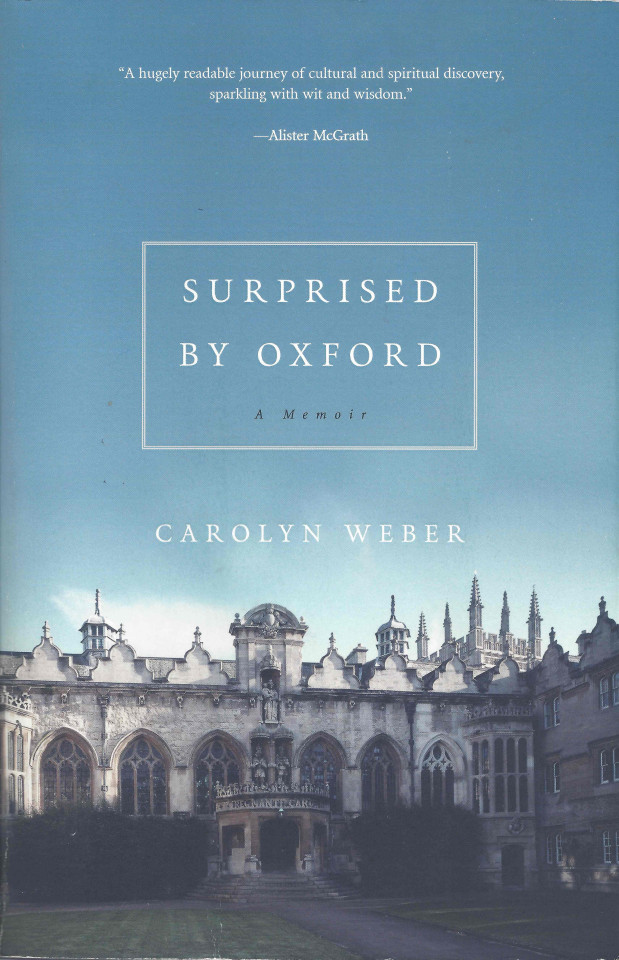#Carolyn Weber
Explore tagged Tumblr posts
Text
There is nothing more powerful, more radical, more transformational than love. No other substance or force. And do not be deceived, for it is all of these things, and then far more than that. It can't be circumscribed by our desires or dictated by the whim of our moods. Not the Great Love of the Universe, as I like to call it. Not the Love that set everything in motion, keeps it in motion, which moves through all things and yet bulldozes nothing, not even our will. Try it. Just try it and you'll see. If you love that Great Love first, because It loved you first, and then love yourself as you have been loved, and love others from that love...WOW! BAM! Life without that kind of faith-that's death. Therein lies the great metaphor...Life without faith IS death. For life, as it was intended to be, is love. Start loving and you'll really start living. There is no other force in the universe comparable to that.
Carolyn Weber, Surprised by Oxford
15 notes
·
View notes
Text
My Top 5 Books of 2023
In 2o23, I read a total of 71 books. Though I was far from my goal of 100, I have had some great adventures in books this year. My average star rating was 3.43, lower than I would like but unsurprising as I got on the hype-train a few times and read some popular but absolutely awful not-for-me books (cough Fourth Wing cough). But I did read plenty of great things too… I read more non-fiction,…

View On WordPress
#2023 reads#book review#books#carolyn weber#H.G. Wells#Humphrey Carpenter#island of dr moreau#Joe Abercrombie#L.M. Montgomery#reading wrap up#shattered sea#surprised by oxford#The Alpine Path#the inklings
1 note
·
View note
Text
God Speaks to Each of Us in Our Own Love Language
The poignance of human longing, existential angst, and the intimacy of God with us
Photo credit to Carolyn Weber: author, speaker and professor Carolyn Weber has always been an academic, but she is no longer an atheist. She has a B.A. Hon. from Huron College at Western University, Canada and a M.Phil. and D.Phil. from Oxford University, England. She has taught at faculty at Oxford University, Seattle University, University of San Francisco, Westmont College, Brescia University…

View On WordPress
#Bible#Carolyn Weber#Ecclesiastes#existential angst#God is love#intimacy#Jana Harman#longing#Shakespeare#Side B Stories
0 notes
Text










carolyn bessette kennedy by bruce weber (1999)
84 notes
·
View notes
Text

6 notes
·
View notes
Text

Carolyn Murphy by Bruce Weber 1996
66 notes
·
View notes
Photo

W Magazine March 1998 - Angela Lindvall & Carolyn Murphy by Bruce Weber
81 notes
·
View notes
Photo

US Vanity Fair September 1999 : Carolyn Bessette Kennedy by Bruce Weber
1K notes
·
View notes
Text
[A. How could such a mode of reflection as objectivity of knowledge, in contrast to a priviliged Cogito, be so profoundly tied to the present? - cont'd]
2. Undoubtedly we should ask
why this question of the Enlightenment [posed in 1784 in the Berlinische Monatschrift], without ever disappearing, had such a different destiny in Germany, France and the Anglo-Saxon countries
why here and there it was invested in such different domains and according to such varied chronologies
a. Let us say in any case that German philosophy gave it substance above all in a historical and political reflection on society (with
one privileged moment: the Reformation
a central problem: religious experience in its relation with the economy and the state
);
from the Hegelians
to the Frankfurt School
to Lukacs, Feuerbach, Marx, Nietzsche and Max Weber
it bears witness to this.
– Michel Foucault, Introduction (part II: The Subjective and the Rational in French Philosophy), The Normal and the Pathologic by Georges Canguilhem, 1966, translated by Carolyn R. Fawcett in collaboration with Robert S. Cohen, 1978
2 notes
·
View notes
Text
Surprised by the Movie SURPRISED BY OXFORD
If you loved Carolyn Weber's book, I think you'll love the movie.
Carolyn (Caro) Weber’s very personal memoir, Surprised by Oxford, is one of my favorite books. I have read it at least twice, I’ve discussed in the book club I attend, and I’ve given it to members of my family. Imagine my delight when I noted the book had been made into a movie (2023) and was available on Hoopla at my cottage area library. While eager to watch the movie, I did wondered if I would…

View On WordPress
2 notes
·
View notes
Text
Disturb Us, O Lord
This may be my motto going forward in 2025. This was the poem I first heard in Carolyn Weber’s memoir Sex and the City of God. I finally found it and am sharing it because it’s a good prayer for the upcoming months: “Disturb us, Lord, whenWe are too well pleased with ourselves,When our dreams have come trueBecause we have dreamed too little,When we arrived safelyBecause we sailed too close to…
0 notes
Link
Adapted from Carolyn Weber’s memoir of the same name, Ryan Whitaker’s drama suggests that finding love and God when you least expect it is a deeply bland affairThis is a film based on a true story, but it doesn’t...
0 notes
Text
https://www.christianpost.com/news/surprised-by-oxford-highlights-carolyn-webers-conversion.html?uid=*%7CUNIQID%7C*&utm_source=The+Christian+Post+List&utm_campaign=CP-Newsletter&utm_medium=email
0 notes
Text
["With Descartes we inherit a particular notion of the rational self that is set within an abiding categorical distinction between mind and body. It is not that the vision of consciousness and mental life that underpins this notion of the rational self is unified and whole, for it was fragmented from the very beginning. In its pure form it can be conceived of as a masculine self that has separated itself off from the supposed impurities of nature and emotional life. Descartes' vision of consciousness is essentially disembodied, as is the conception of a rational agent that flows from it. It is men who think. It is men who are conceived of in our western philosophical tradition as the rational sex, for they alone can take their reason for granted and so can escape from the demands of nature. It is in this setting that we learn to pay deference to the workings of a 'pure reason' that has been untainted by empirical investigations.
It is crucial to appreciate that for a Cartesian tradition, our bodies are part of a separate nature and so they are no part of ourselves. As rational selves our identities lie in our minds, for this is where we can be free to think our own thoughts and have our own memories. Within this tradition personal identity becomes an issue of memory and of being able to identify memories as 'mine'. The relationship with different aspects of the self is taken to be possessive. There is am implicit relationship of authority where the mind is supposedly in control of the body and tells it what to do.
This sees control as essentially an issue of domination, for there is little to be learned from the body or from emotions and feelings which supposedly have their source within its province. The body is part of a nature that is deemed to be 'dead', for it only exists as matter and has no life of its own. The body does not have its own wisdom. If it does we are deaf to it, for we learn to live our lives as a matter of 'mind over matter'. We learn to pursue our ends and goals regardless of what our bodies might be saying to us.
For Descartes reason is sovereign. It is through reason alone that we supposedly discern the ends and purposes of our lives. For a crucial aspect of the dominance of this mechanistic world view that is so often rendered invisible through being taken for granted is that the natural world we inherit is dead; for the Scientific Revolutions, in Carolyn Merchant's haunting phrase, went hand in hand with the death of nature. In our vision of the cosmos, nature only exists as matter that is governed by laws that human reason alone is able to discern and control. This has left a profound legacy for our philosophy and social theory, for it means that we live in a world that is bereft of meaning and value.
Descartes learned to think of animals and nature in mechanical terms as machines. Not only was the world disenchanted, as Max Weber has it, but it lost contact with its soul. It was in ridding ourselves of this archaic language of the supernatural that modernity was to take shape. As natural explanations came to replace theological explanations in terms of purpose, it seemed as if meaning was drained out of life. We were destined to live in a meaningless world that could not respond to our expressions, for it was supposedly dead. There was no echo to be heard within the world of nature. We were left alone, talking endlessly to ourselves. There was no one within nature to listen."]


victor j. seidler, from unreasonable men: masculinity and social theory, 1994
38 notes
·
View notes
Quote
There is nothing more powerful, more radical, more transformational than love. No other source or substance or force. And do not be deceived, for it is all of these things, and then some! Often folks like to dismiss it as a mere emotion, but it is far more than that. It can't be circumscribed by our desires or dictated by the whim of our moods. Not the Great Love of the Universe, as I like to call it. Not the Love that set everything in motion, keeps it in motion, which moves through all things and yet bulldozes nothing, not even our will. Try it. Just try it and you'll see. If you love that Great Love first, because It loved you first, and then love yourself as you have been loved, and then love others from that love… Wow! Bam! Life without that kind of faith - that's death. Therein lies the great metaphor. Life without faith is death. For life, as it was intended to be, is love. Start loving and you'll really start living. There is no other force in the universe comparable to that.
Carolyn Weber, "Surprised by Oxford"
#this is the great adventure#my post#personal#quote#faith#love#real love#true love#Jesus#christians#christian#christianity#Carolyn Weber#surprised by oxford#book#reading#new book#truth
170 notes
·
View notes
Text

Carolyn Murphy by Bruce Weber 1998
64 notes
·
View notes